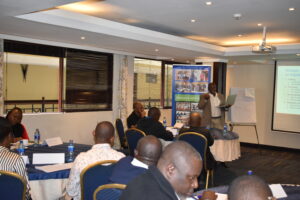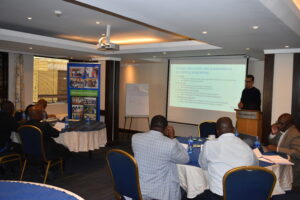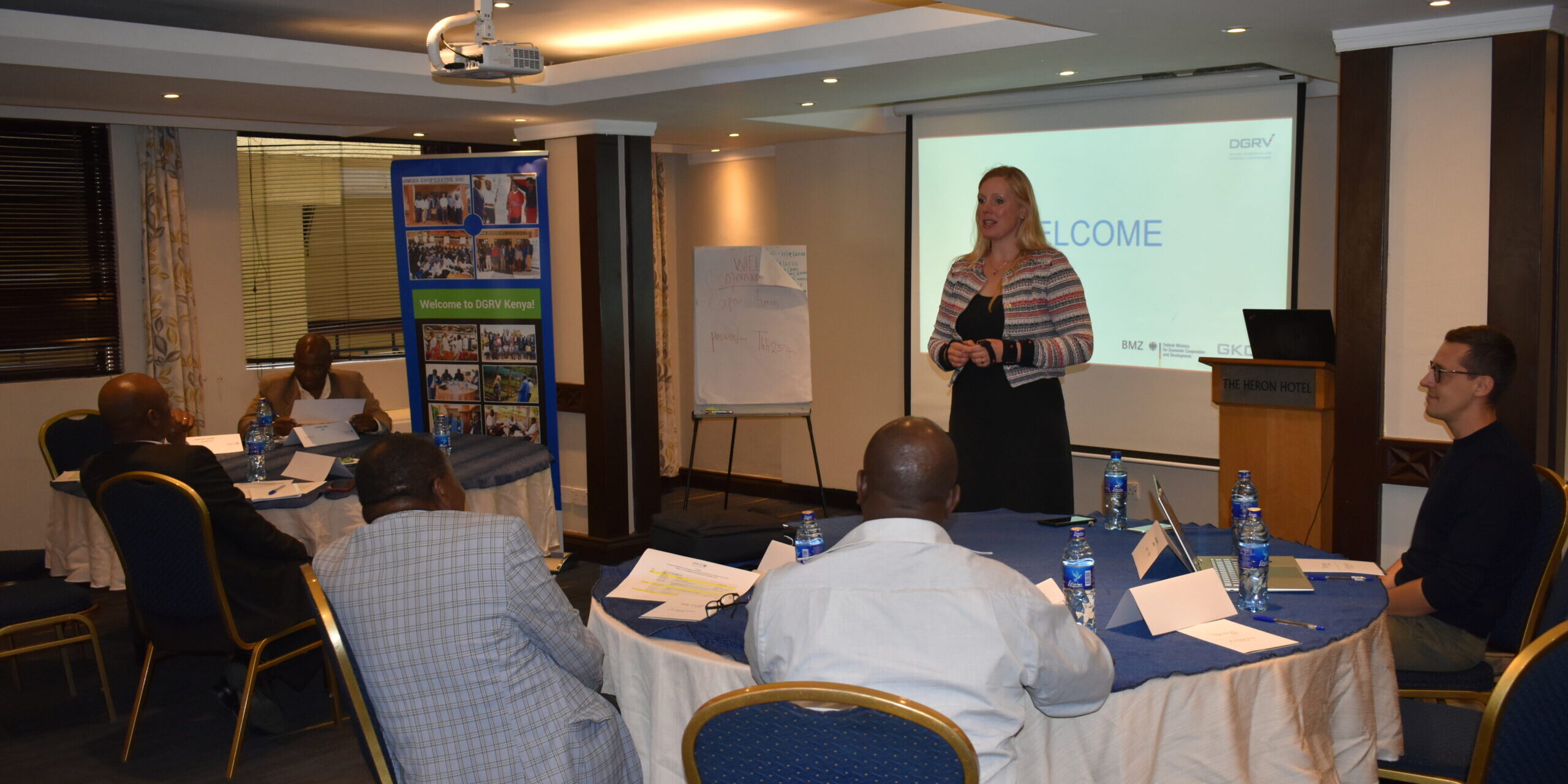The need for this workshop was informed by the two field studies (2021 and 2022) that was conducted by DGRV/GKCD in 2021 and 2022 through the engagement of Mr. Walter Schütz, a German Co-operative Auditor and International Consultant. The studies were on “Non-Withdrawable Deposit Taking SACCOS’ (Small-Scale SACCOs not regulated by SASRA) Supervision and Auditing in Narok, and in Kenya”.
 One of the recommendations from the two field studies was to develop a special co-operative auditors training programme in order to improve the quality of co-operative audits in the country. The recommendation, and an outline of a special cooperative auditors training programme were agreed on during the co-operative stakeholders’ workshop held on 8th September 2023 at The Heron Hotel where findings of the study were disseminated. The recommendation, and the outline were also agreed on during various discussion meetings held between 4th September – 14th September 2023 with key stakeholders, including the Co-operative Audit Department of the State Department for Co-operatives.
One of the recommendations from the two field studies was to develop a special co-operative auditors training programme in order to improve the quality of co-operative audits in the country. The recommendation, and an outline of a special cooperative auditors training programme were agreed on during the co-operative stakeholders’ workshop held on 8th September 2023 at The Heron Hotel where findings of the study were disseminated. The recommendation, and the outline were also agreed on during various discussion meetings held between 4th September – 14th September 2023 with key stakeholders, including the Co-operative Audit Department of the State Department for Co-operatives.
The consultant also took the participants through the Guidance Note on Registration and Approval of External Auditors for SACCOs Regulated by SASRA. It was noted that the Guidance Note aims at strengthening the external audits of the SACCOs regulated by SASRA by emphasizing on the need for co-operative auditors to attend a training programme on financial reporting and SACCOs business as a prerequisite for registration to audit the SACCOs. In addition, all co-operative auditors must be members of ICPAK and registered with State Department for Co-operatives and SASRA. He noted that auditors require refresher trainings on co-operative auditing which could be achieved through the various ICPAK conferences where the auditors must attend them to attain the required CPD hours as well as the requisite skills and knowledge. Lastly, the Guidance Note emphasize the need to rotate auditors after every 3 years to ensure independence in auditing and removal of external auditors if they breach the laid down regulations.
The stakeholders acknowledged the challenges that auditors in the counties are few, the knowledge gap is wide and there are some gaps in continuous improvement of the quality of co-operative auditing in some counties. Moreover, they also agreed that a Guidance Note like that shared by SASRA should be shared with Co-operative Departments at the Counties level by the State Departments for Co-operatives as it will improve the quality of co-operative auditing.
improvement of the quality of co-operative auditing in some counties. Moreover, they also agreed that a Guidance Note like that shared by SASRA should be shared with Co-operative Departments at the Counties level by the State Departments for Co-operatives as it will improve the quality of co-operative auditing.
The consultant also took the participants through the refined outline of the special cooperative auditors training programme which included: The Co-operative Business Model, Auditing, Risk-oriented Audit of Co-operatives, Social Impact Audit, Legal Provision, Business Administration, Taxes and Soft skills. The The stakeholders discussed the outline and approved it. Administrative matters of the training like hosting, financing and sustainability were also addressed comprehensively. The stakeholders agreed that the State Department for Co-operatives should now take the lead in spearheading co-operative audit training to guarantee competent auditors and high-quality audit among co-operatives in Kenya.
We are looking forward to better audit experiences among co-operatives in Kenya!







